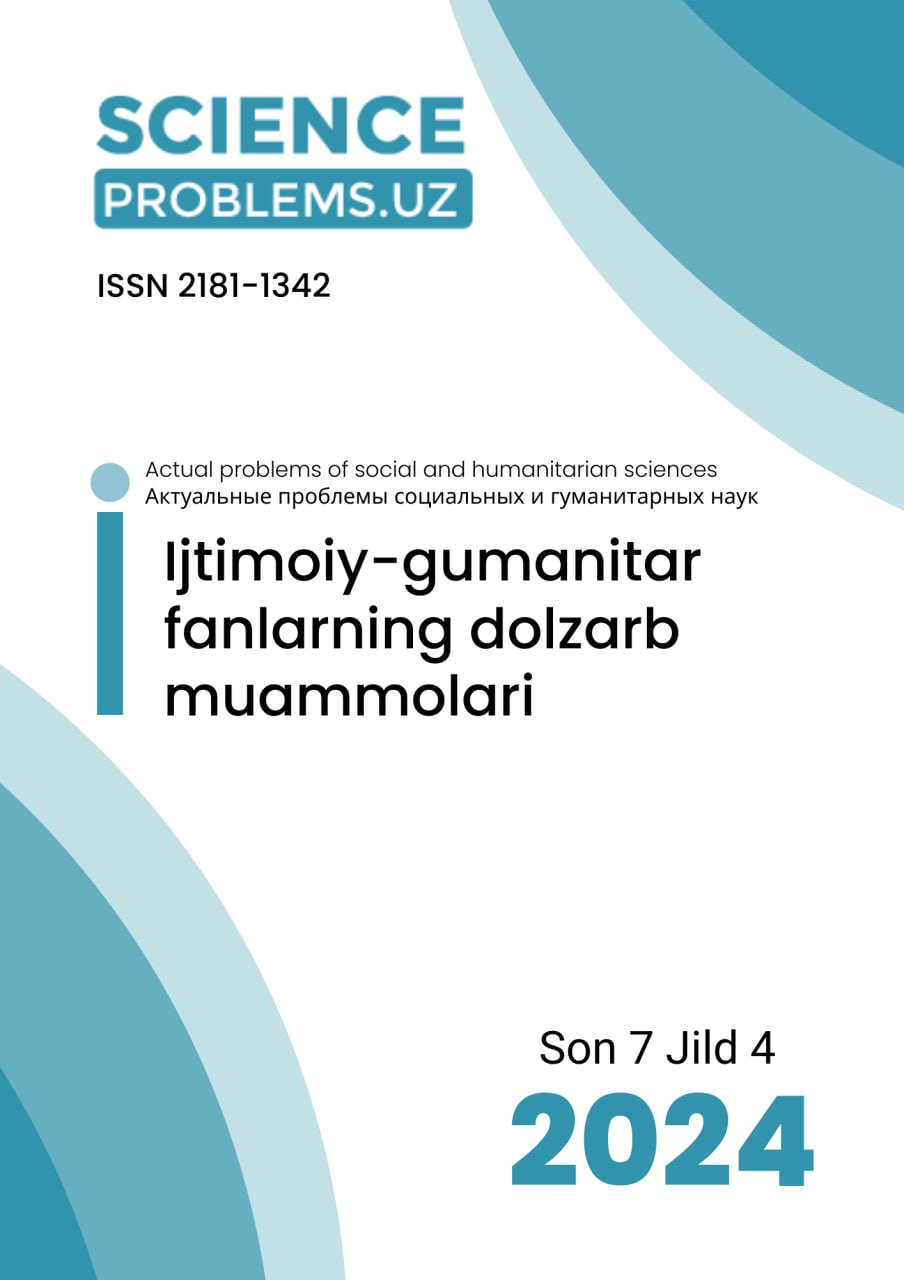THE ROLE OF THE CONCEPT OF "FLEXIBILITIES" IN THE IMPLEMENTATION OF INTERNATIONAL LEGAL NORMS IN THE FIELD OF INTELLECTUAL PROPERTY INTO THE LEGISLATION OF THE REPUBLIC OF UZBEKISTAN
DOI:
https://doi.org/10.47390/SPR1342V4I7Y2024N44Keywords:
the concept ofAbstract
This article examines the concept of "flexibilities" in the context of implementing international legal norms in the field of intellectual property within the legislation of the Republic of Uzbekistan. It analyzes how the flexibility principles embedded in international agreements, such as the TRIPS Agreement (Trade-Related Aspects of Intellectual Property Rights), influence the adaptation and incorporation of these norms at the national level. Special attention is given to the legal mechanisms and strategic approaches that allow Uzbekistan to balance the protection of intellectual property rights with the achievement of socio-economic development goals. The article explores specific legislative initiatives and reforms aimed at optimizing the national legal system in line with international standards, and discusses the challenges and prospects for further development in this area.
References
https://www.wipo.int/treaties/ru/ip/paris/index.html
Тошев Б.Н. Халкаро ташкилотларнинг муаллифлик хукукига оид актларининг хукукий макоми.-Т., 2007 й.
Окюлов О. Правовой статус интеллектуальной собственности. Автореф.дис. док.юр. наук.Т: ТГЮИ. 2000 г.
Убайдуллаев З. С. Интеллектуал мулк ҳуқуқига доир норматив-ҳуқуқий ҳужжатлар ва халқаро шартномалар тўплами. – Т.: ЖИДУ, 2015.; Убайдуллаев З. С. Интеллектуал мулк объектларининг тижоратлашуви ва технологиялар трансферининг ҳуқуқий асослари. Монография. – Т.: ЖИДУ, 2015.
WIPO, Patent Related Flexibilities in the Multilateral Legal Framework and their Legislative Implementation at the National and Regional Levels (2010), p. 11. https://www.wipo.int/meetings/en/doc_details.jsp?doc_id=142068.
Pan Xichun/ Flexibility of the TRIPS Agreement with Regard to Patent Protection. P. 6 https://core.ac.uk/download/pdf/289931406.pdf
Carolyn Deere, The Implementation Game, Oxford University Press (2009), p.68.
Doha Declaration on the TRIPS Agreement and Public Health, paragraph 5(d). https://www.wipo.int/edocs/mdocs/scp/ru/scp_26/scp_26_5.pdf
Sisule F. Musungu and Cecilia Oh “The Use of Flexibilities in TRIP by Developing Countries: Can They Promote Access to Medicines?”, (2006) South Center.
Ng-Loy Wee Loon, “Exploring Flexibilities within the Global IP Standards”, I.P.Q. (2009), 2, 162- 164.
Keith E. Maskus, “Intellectual Property Rights in the Global Economy”, Institute for International Economics (2000), p.176.
Carlos Correa, “Guidelines for the Examination of Pharmaceutical Patents: Developing a public health perspective” (1st edition., WTO-UNCTAD-ICTSD 2007) preface. P. 138
Ruth L. Okediji, “Tthe International Copyright System: Limitations, Exceptions and Public Interest Considerations, for Developing Countries” (2006) UNCTAD-ICTSD.
Geiger Christopher. The Revitalisation of the Object and Purpose of the TRIPS Agreement: The Plain Packaging Reports and the Awakening of the TRIPS Flexibility Clauses (Centre for International Intellectual Property Studies (CEIPI) Research Paper, No. 2020-01), 2020, 48 pp., 18.03.2020 (together with Luc Desaunettes-Barbero). https://www.ip.mpg.de/en/publications/details/the-revitalisation-of-the-object-and-purpose-of-the-trips-agreement-the-plain-packaging-reports-and-the-awakening-of-the-trips-flexibility-clauses.html
https://wipolex-res.wipo.int/edocs/lexdocs/treaties/ru/wto01/trt_wto01_001ru.pdf
Carolyn Deere, The Implementation Game (1st edn, OUP 2009) P. 75-76.








